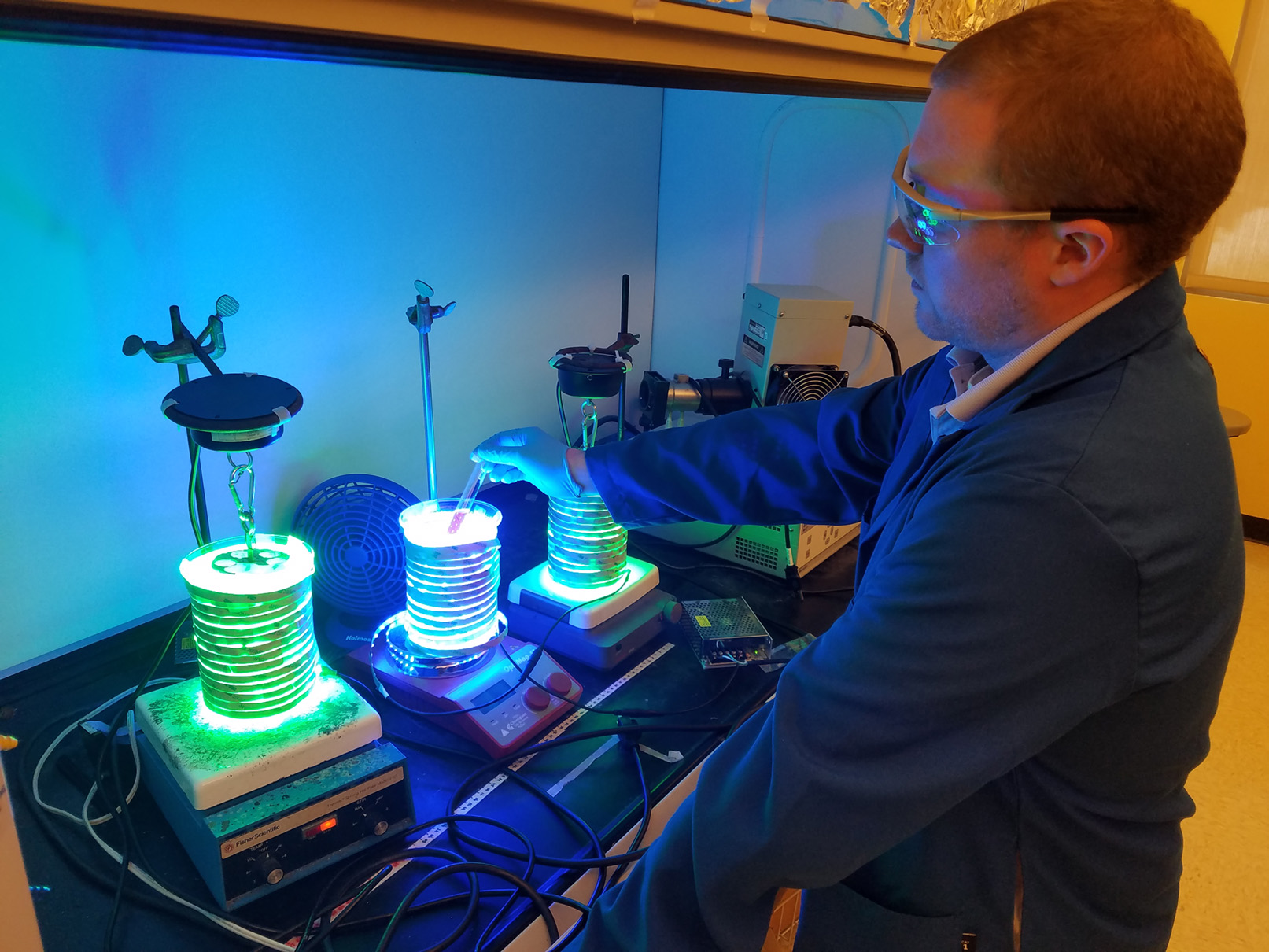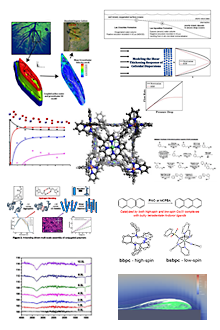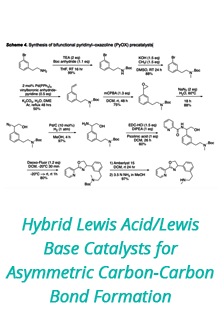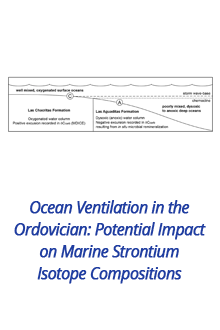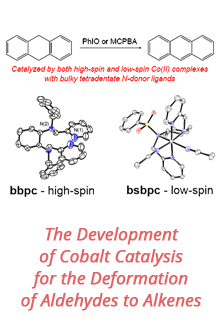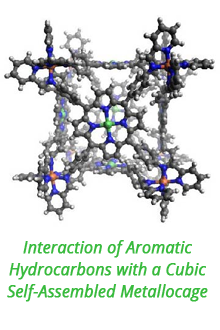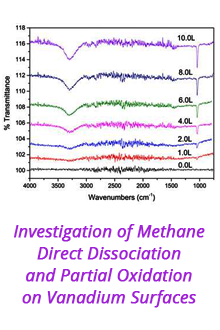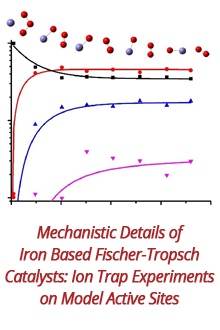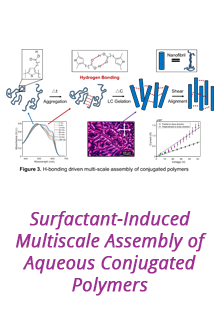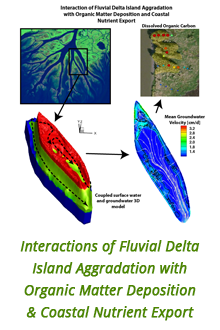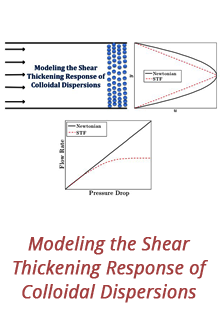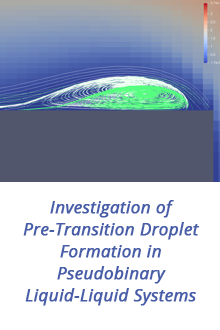Dr. William (Bill) McNamara
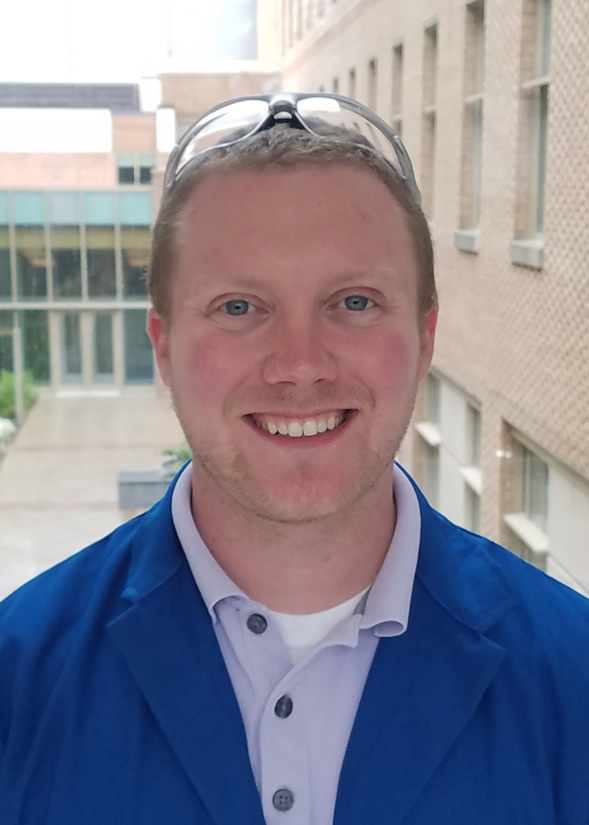 Chemistry Department
Chemistry Department
College of William and Mary
Catalytic Hydrogenations using First Row Transition Metal Complexes
Dr. William (Bill) McNamara is an inorganic chemist whose research project “Catalytic Hydrogenations Using First Row Transition Metals” has been supported by a PRF Undergraduate New Investigator (UNI) Grant. Dr. McNamara, an associate professor at the College of William and Mary, in Williamsburg, Virginia, indicates that the initial focus of the project was development of iron, cobalt and nickel catalysts for hydrogenation reactions. As he freely admits, “twenty-five or so new catalyst complexes were made but none were effective for hydrogenation reactions.”
However, Dr. McNamara and his students found that some of the cobalt and iron catalysts that they prepared were effective for carbon dioxide reduction to methanol. Conversion of carbon dioxide to usable alternatives is of considerable interest not only to chemists, but also to society in general. The ability of the iron and cobalt catalysts to reduce carbon dioxide has, as Dr. McNamara states, “led to an entirely new avenue of research for his group.” While this is a deviation from the original proposed research, such deviations are both acceptable and exciting, as long as the principal investigator obtains permission from their program manager, and the revised research is still within the scope of PRF funding.
In addition to developing iron and cobalt catalysts and exploring variations of the catalysts, Dr. McNamara’s group has extended their studies to exploring reaction mechanisms and enhancement of reactivity by electrochemical means. In the long term, these studies may lead to effective utilization of carbon dioxide generated from petroleum sources.
Dr. McNamara, who is a native of Scranton, PA, earned his B.S. degree from Lafayette College and benefited greatly from the ability to do research as an undergraduate. This is reflected in the fact the he considers the most rewarding aspect of his career working with undergraduate students who arrive with a limited chemistry skill set and evolve as they work in his program into researchers who can handle complex syntheses and sophisticated instrumentation.
Dr. McNamara joined the Chemistry Department of the College of William and Mary in 2012 after obtaining a Ph.D. degree at Yale University and a Postdoctoral appointment at the University of Rochester. The PRF Grant has been an important element in launching his independent career. As his first grant, PRF funding provided seed money to start his program and do the research that led to the successful, albeit unexpected, finding of the catalysts for electrocatalytic reductions; seven publications; and presentations by himself and his students at National and Regional ACS meetings. Further, this PRF-supported work provided the foundation and preliminary results for a successful NSF CAREER grant application that will provide five years of funding for his lab, and also contributed to his award of tenure.

